Niche Selection Guide: Why Pest Control Could Be Your Next Profitable Venture
Choosing the right niche makes a huge difference in attaining long-term success. While some niches…
In this report, you will learn:
Section 1.
In this section, you will learn some market insights.
The tourism industry represents many industries, such as lodging, transport, attractions, travel companies, and more. Globally, travel and tourism’s direct contribution to GDP was approximately 2.9 trillion U.S. dollars in 2019, according to Statista.
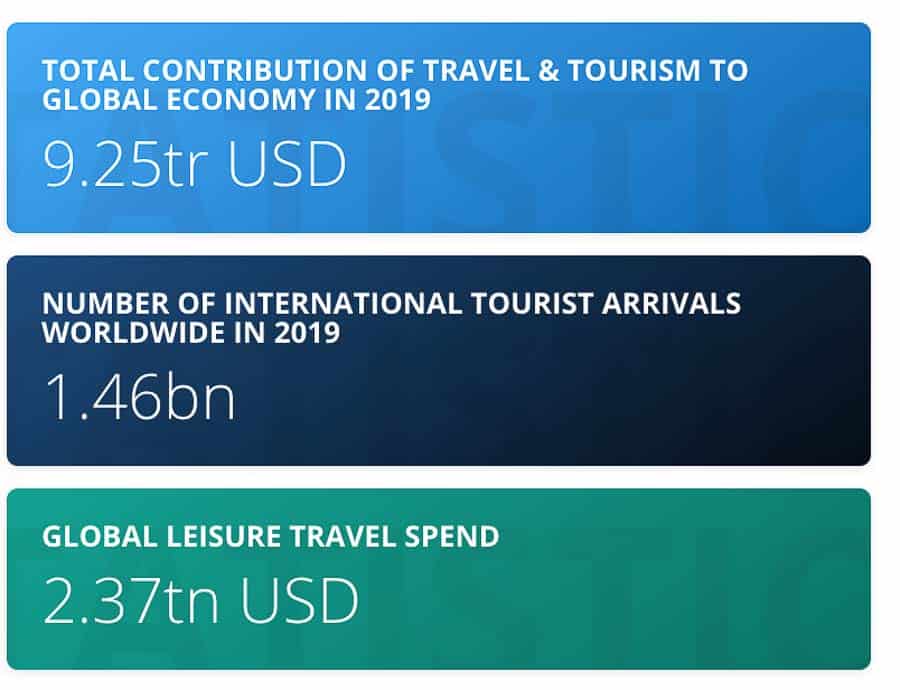
When looking at countries that directly contributed the most to global GDP, the United States’ travel and tourism industry contributed the largest sum at 580.7 billion U.S. dollars.
Also, traveling both internationally and domestically has become increasingly common all over the world. As a result, both leisure travel spending and business travel spending have seen year-over-year growth over the past five years.
Lastly, the World Tourism Organization (UNWTO) promotes tourism to attract diverse tourists across the globe. These initiatives are leading to the growth of the global tourism market. Adventure tourism is a popular concept in the tourism market, driving the overall tourism market. Moreover, medical tourism is also a new trend observed in the global tourism market.
The Covid-19 is a factor that has significantly impacted this industry. As countries implemented severe travel restrictions to control the disease’s spread, national and international tourism came to a drastic pause.
Sectors like airlines, hotels, and different tourist employees were directly impacted with important loss. While the long-term economic damage caused by the COVID-19 pandemic cannot fully be assessed yet, the standstill of public life is already affecting not only tourism but also industries connected to tourism, for example, global restaurant visitation, theater performances, and events.
One of the few trends with still some options is domestic tourism. With travelers considering destinations closer to home in these stages of travel normalization and with still important travel restrictions in place for international travel due to COVID-19, countries with higher shares of domestic tourism are likely to recover earlier and faster.
Section 2.
In this section, I will analyse the current trends in this niche.
Market trends can help you identify how the market is doing. Trends allow you to see the interest in a certain topic over time.
When analyzing the trends for a niche, it is vital to study the interest over time- If the interest fluctuates a lot with periods going down to zero, it normally would be a bad sign. However, if the trend stays up and is stable or growing, it could be a good sign. There are other factors to consider as well. More on this later.
To analyze trends in the tourism niches, I will use the Google Trends tool. When using this tool, there are a few distinctions to take into account:
‘Topics‘ can be great to find out the interest of people in a niche. The idea would be to use ‘topics’ to find niches that worth pursuing. Then, you should use ‘search terms‘ as the first step towards content creation. This will help you understand if it is worth creating content on a given term based on current trends.
For this report, I will analyze the topic ‘Tourism.’ Then, I have set the location to worldwide and filter by the past five years.
There a few things we can observe from the graphic below:
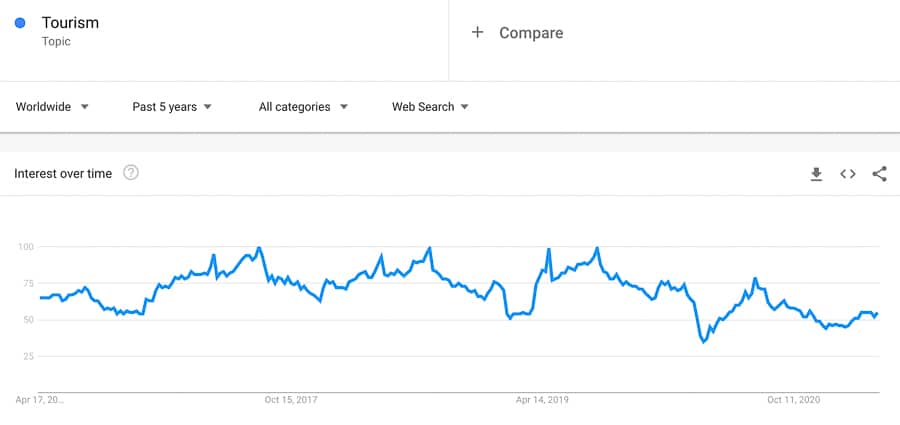
This shows that creating an online business in the tourism niche could work. However, to avoid the tough competition in this niche and the impact of Covid for now, you should niche down and find sub-niche and micro-niche ideas.
So how do you find profitable sub-niche and micro-niche ideas? With proper niche research.
But we’ll get into that in the following sections. Just bear with me. For now, you can read in this post all the advantages of niche marketing.
Lastly, I’d like to add a note to avoid confusion between travel and tourism.
Usually, travel is related to an individual’s movement from one place to another. Tourism, on the other hand, refers to the movement of an individual for recreational purposes
Although most of the the ideas in this post could be used for the travel niches, is not exactly the same.
Section 3.
Learn how to find a niche step by step.
There are many methods you can use to find out exciting sub-niches. The simplest one might be a combination of Wikipedia with Google Suggest to find ideas. Then you can use Google Trend to validate your idea.
This is how to do it:
Step #1. Head to Wikipedia, and in the search bar, type your niche idea:
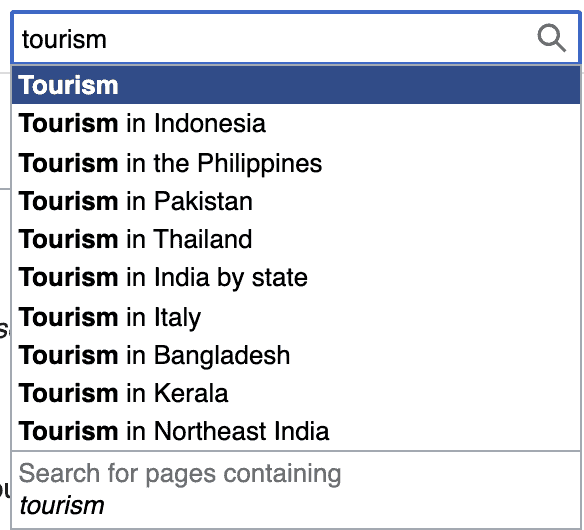
Step #2. Skim the page for sub-niche ideas. In some occasions, like this one, you can already find already plenty in the table of contents:
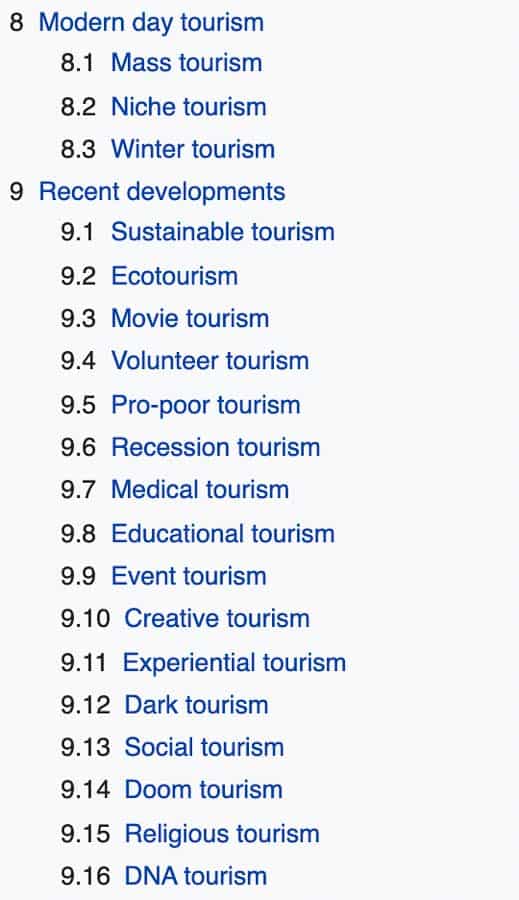
Step #3. Head to Google.com and enter some of your niche keywords. Google will instantly suggest some sub-niches for you.
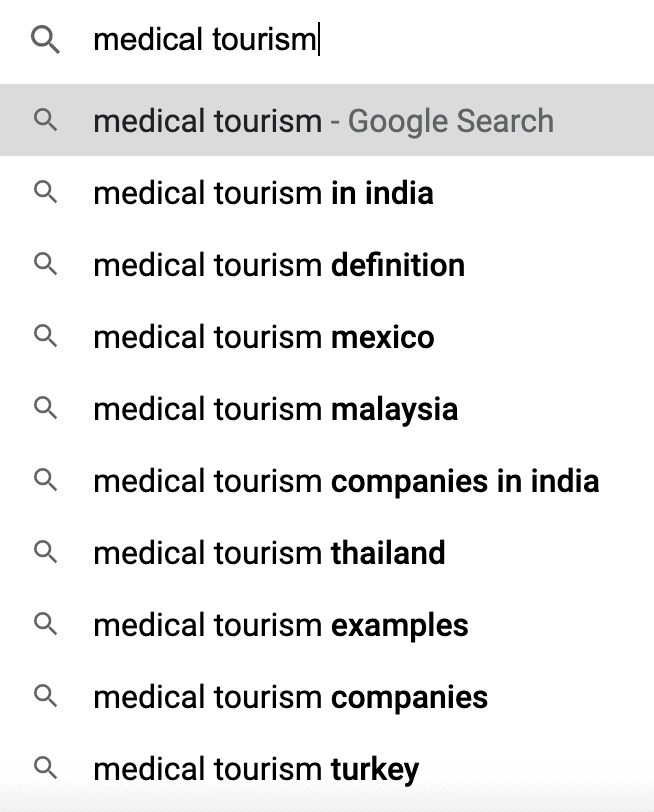
You can even keep niching them down as you type:
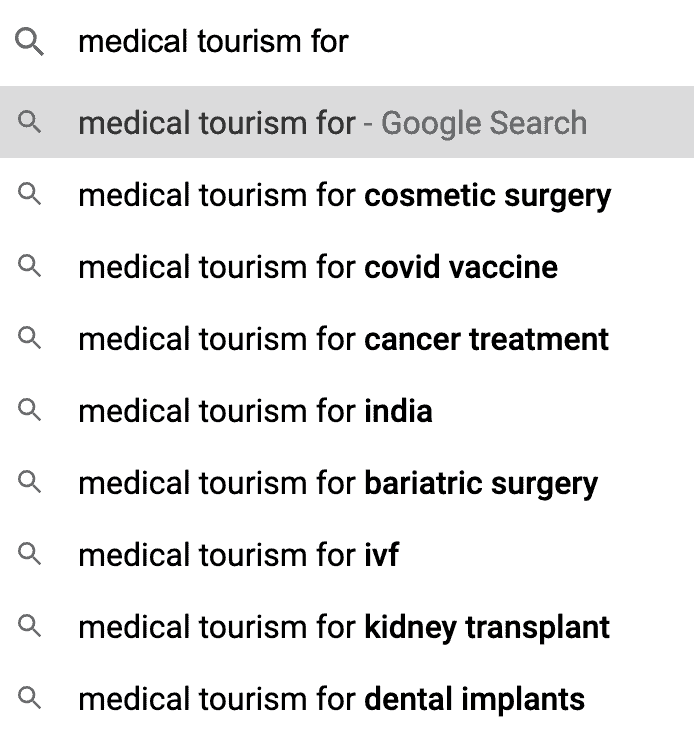
This is a very effective and easy trick to find sub-niche and micro-niche ideas.
The last step is to use Google Trends to validate the niche. Following this example, I will check for ‘medical tourism.’
The graphic below shows a stable trend with a good number of people with interest over time. Despite Covid, this topic trend did not change much, which is a great signal.
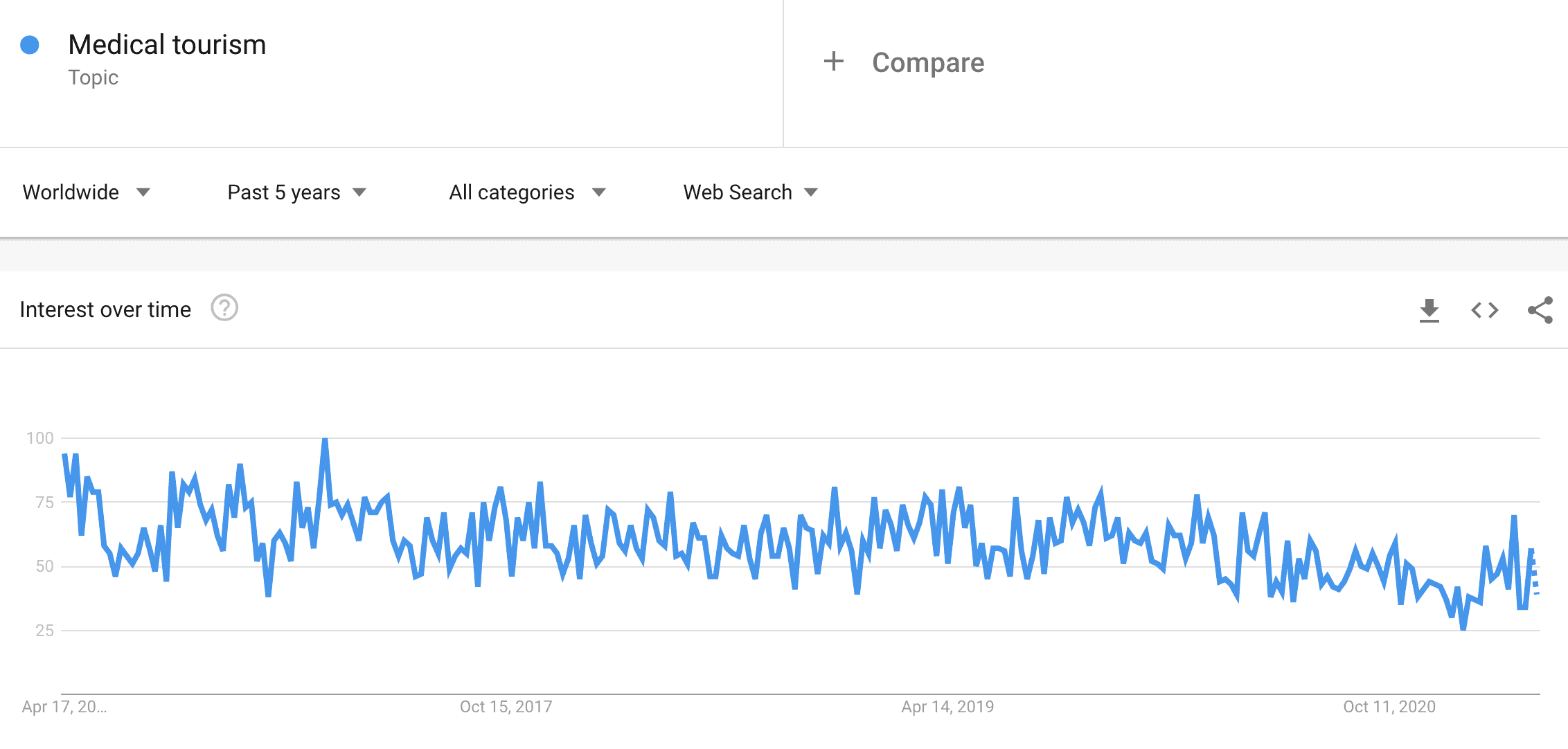
Also, if you scroll down, you will find a series of related topics and queries. These can be great to find out current trending niches.
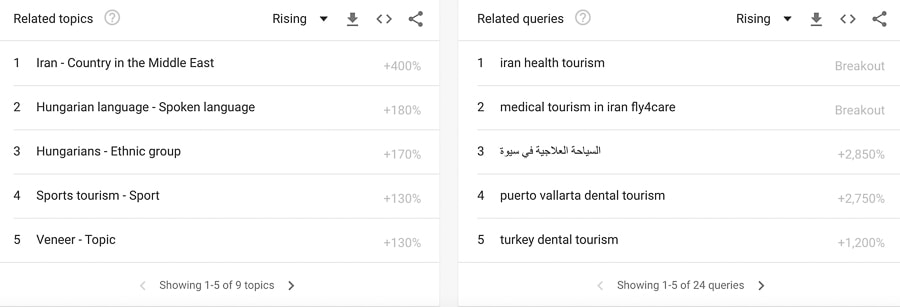
You just need to click on the one you are interested in to see the graphic trend. For this example, I clicked on ‘Turkey dental tourism.’ In this case, you can observe that this trend is starting to get traction recently. So it might be a good idea to deep dive and find out if this could be a micro-niche where there is not yet almost competition.
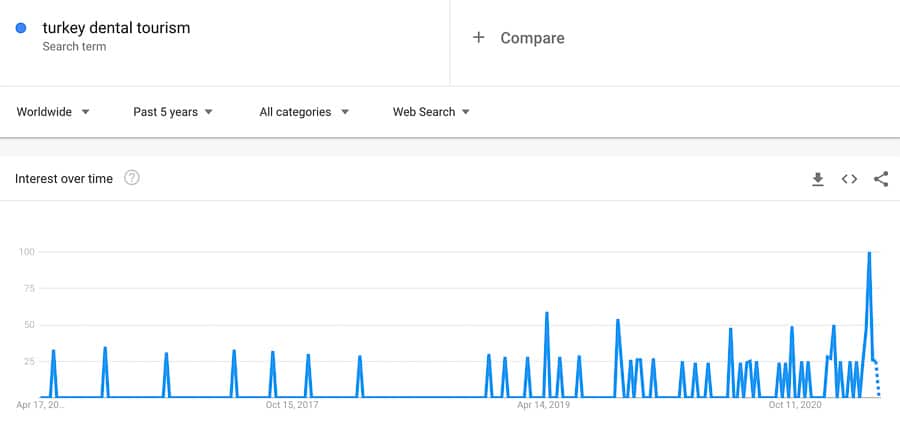
Lastly, you could also include in the Google Trends search bar a few terms from your Google suggestions or your Wikipedia keywords to get a good picture of interest over time about a certain topic.

As you can see, all these trends are very stable, and even though they suffered a drop in interest due to the covid, they are slowly recovering.
The higher the interest over time, the higher the competence as well. So it is vital to find a sub-niche or micro-niche in the sweet spot between search volume and commercial value—more on this in the next section.
In any case, this a very effective method to find sub-niche and micro-niche ideas in any industry quickly.
Lastly, trends that are just starting to grow are the ones with the most potential. It could be a new market blooming, meaning the competition is inexistent or limited. So do no drop ideas only because trends show low numbers. If the trend’s interest is exponentially growing and then it gets stable, it is probably worth pursuing.
Section 4.
In this section, you will learn how competitive is this niche and opportunities.
As in any niche with demand, competition in the tourism niche can be brutal. Big corporations typically dominate the internet for competitive terms in popular niches. And entrepreneurs like us simply don’t have the resources to compete against them.
That is why sub-niches and micro-niches are a much better option- The more you niche down, the smaller the competence. But if you go too niche, you might face another issue: That the market might be too small. The only way to know is by analyzing keywords directly related to your sub-niche or micro-niche ideas.
To perform keyword research, you will need access to an SEO tool. Here you can find how to do it with Keysearch and SE ranking.
Let’s use for this example a trend which is increasing in popularity: ‘Adventure Tourism’
As you can see from the image below, the difficulty to rank for this term is ‘effortless,’ which gives you a good chance to stand out. Also, the volume for this specific term is Ok. But let’s see if we can find related topics with little competition on this sub-niche.

With the help of your SEO tool, you can generate related terms and look for topics without much competition.
In my case, with a quick filter, I came up with a list of 11 keywords with good search volume and fairly easy competition:
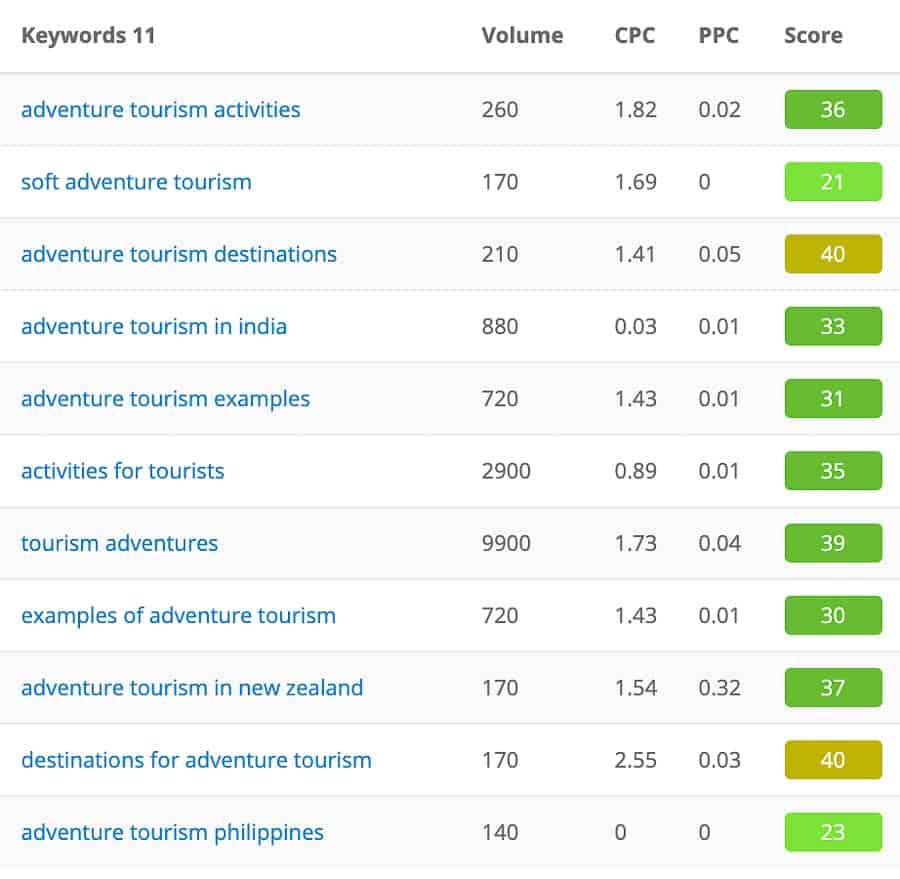
It took me only five minutes to come up with a list of keywords with low competition and a decent search volume. They also have a reasonable CPC, which suggests there is a commercial value behind some of them.
With this quick keyword research, I was able to find excellent terms for potential blog posts in the tourism niches. You need to stay away from competitive terms and always look for keywords where you stand a chance to rank.
Resources:
Section 5.
In this section, you will learn different ways to monetise this niche.
There are several ways you can monetize your tourism niche website.
But what works best is to adapt your strategy to the user intent. For instance, if your website is about adventure tourism offering adventure packages or working with adventure tourism affiliates will probably be the best solution.
The idea is to adopt a solution to your audience’s problem in the best format. Also, most of the time, online businesses adopt more than one monetization method.
Some methods you can use to make money with tourism niches are:
Services are probably the most used method to monetize tourism niches websites.
Are many the services you can provide in the tourism industry.
Depending on your selected niche, some services will work better than others.
Also, some of the services might be presential, but you could deliver many others online. For instance, you could provide a service to organize adventure trips based on online consultations. You just need to set up a call with your potential customer or ask them to fill a form with the requirements and deliver the pdf plan.
You could even create online courses to help specific users providing valuable training.
Some website examples using these methods are:
Resources:
Products can be a great way to monetize a website easily.
Some products you could create are:
When you present the right product to the right audience, products can be the easiest way to start making money. They also allow you to earn a passive income when you combine them with an evergreen sales funnel.
Some website examples using these methods are:
Resources:
Subscriptions and memberships can make a great alternative to monetize your website.
Subscriptions are based on delivering extra value to your readers. This could be access to a premium section, deliver new content only to subscribers, and things like that.
Also, you can get recurring income from memberships. But you need to keep providing value to your readers constantly. This could be by delivering tourism reports of a certain niche, long-from articles like guides to a destination, video series or anything else related to your niche.
You can also provide exclusive access to your videos or podcast to your subscribers. And the best thing is that you simply need a plugin like MemberMouse to create subscriptions and memberships effortlessly.
Some website examples using this method are:
Ads used to be one of the most common ways to monetize websites. However, there are three downsides with them:
Having said so, many businesses use ads as their primary source of income. You could use platforms like Google Adsense, Media.net, VigLink, etc.
In any case, you could place ads just for an extra income rather than the primary source of income.
This is my favorite method to make money online in any niche.
Affiliate marketing might need some time to get traction, but you will earn a passive income when it does.
All you need to do is to sign to the best affiliate programs in your niche. Then, I suggest you read how to make money with affiliate marketing, and you will be ready to monetize your site with this method.
Some website examples using this method are:
Resources:
Section 6.
In this section, I will provide you with some profitable niche ideas.
After putting into practice what I have explained in this report and researching keywords, I have collected a list of sub-niches and micro-niches in tourism that can do a great online business.
I personally recommend focusing on sub-niches or micro-niches where trends are steady even though the volume is not high since they probably will be the ones with fewer competitors. At the end of the day, if you find good enough keywords, you will be able to monetize more easily.
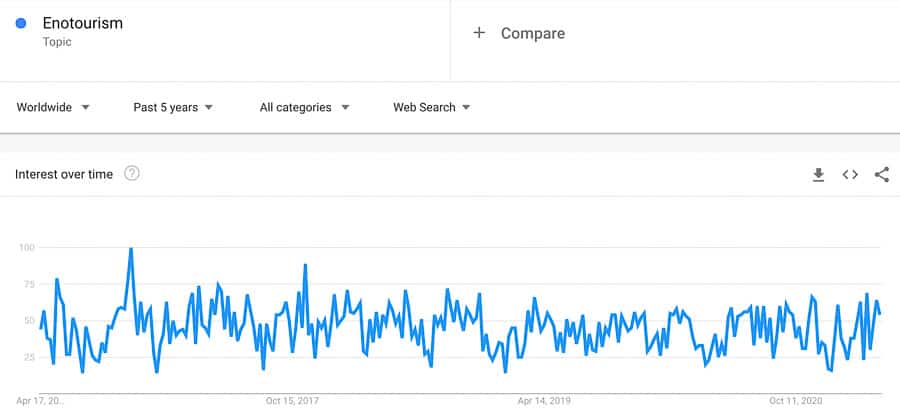
Micro-niche ideas:

Interest by regions:
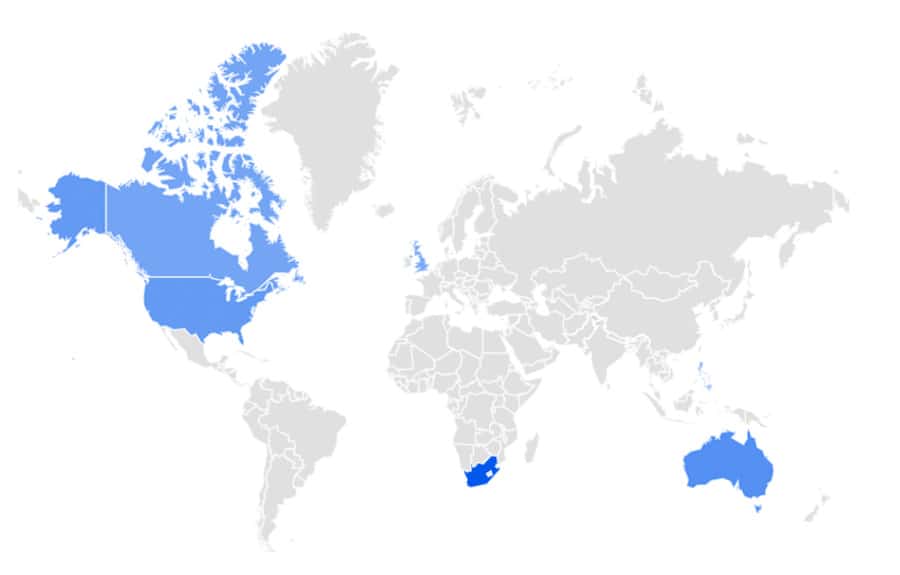
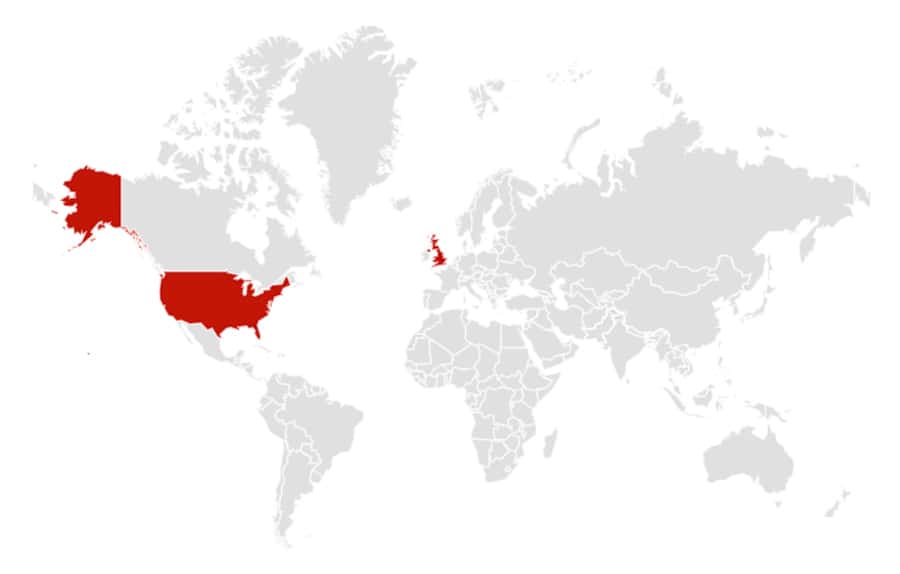
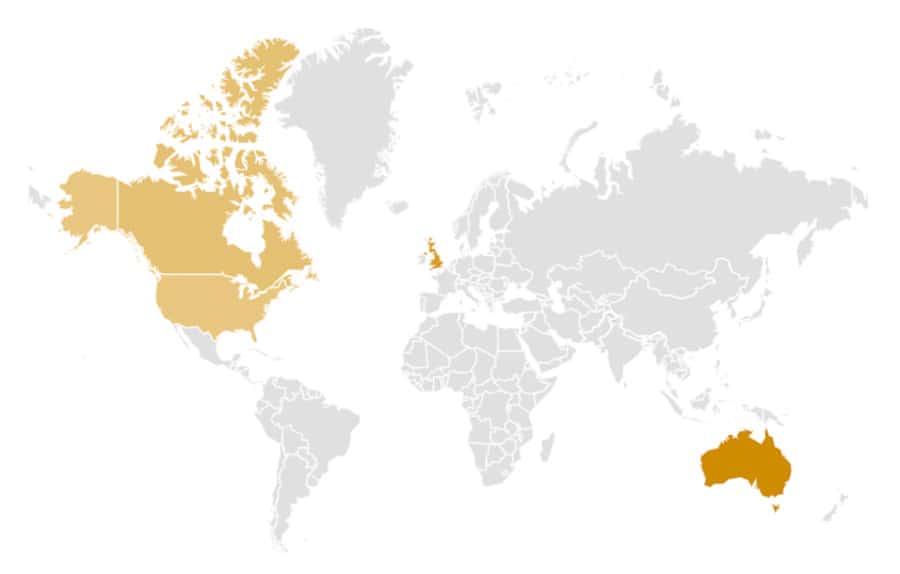
Recommended monetization methods:
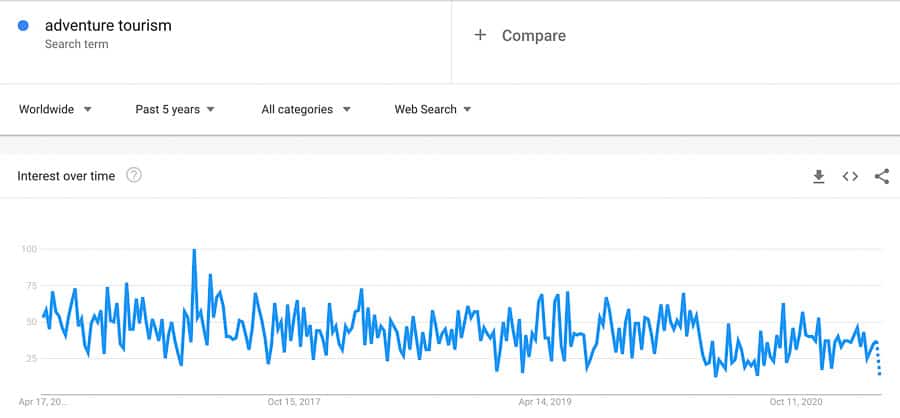
Micro-niche ideas:
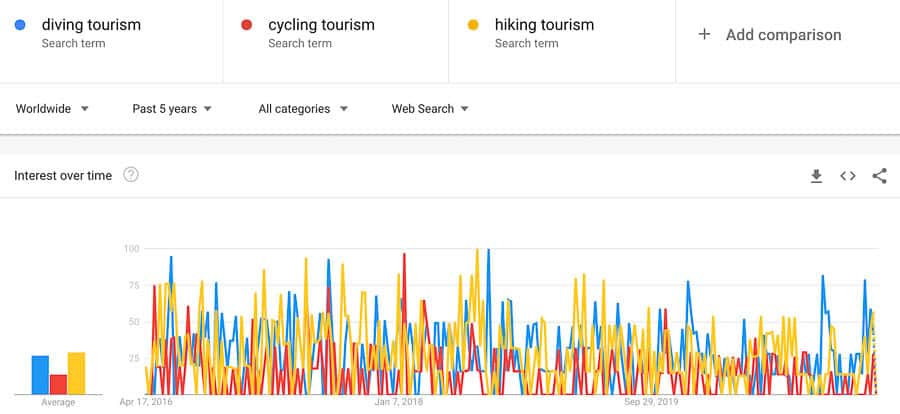
Interest by regions:
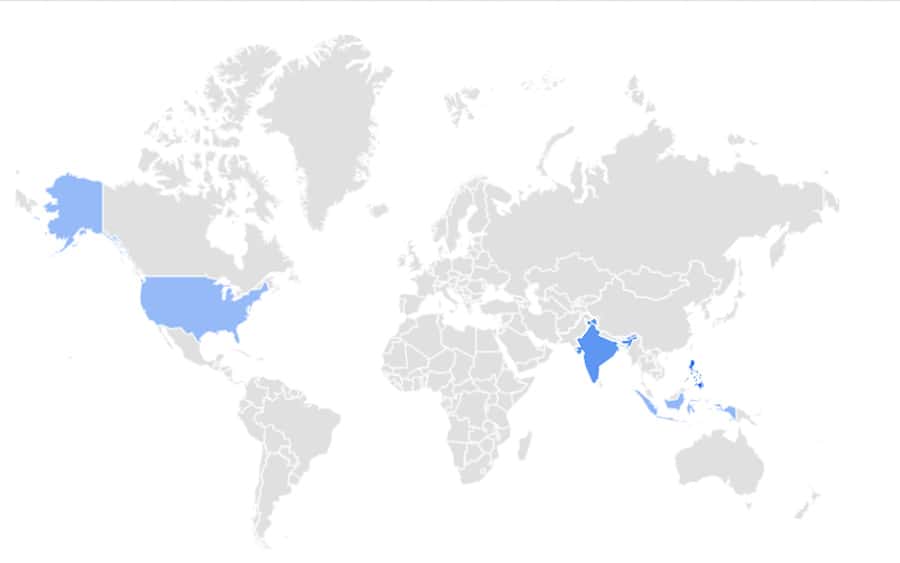
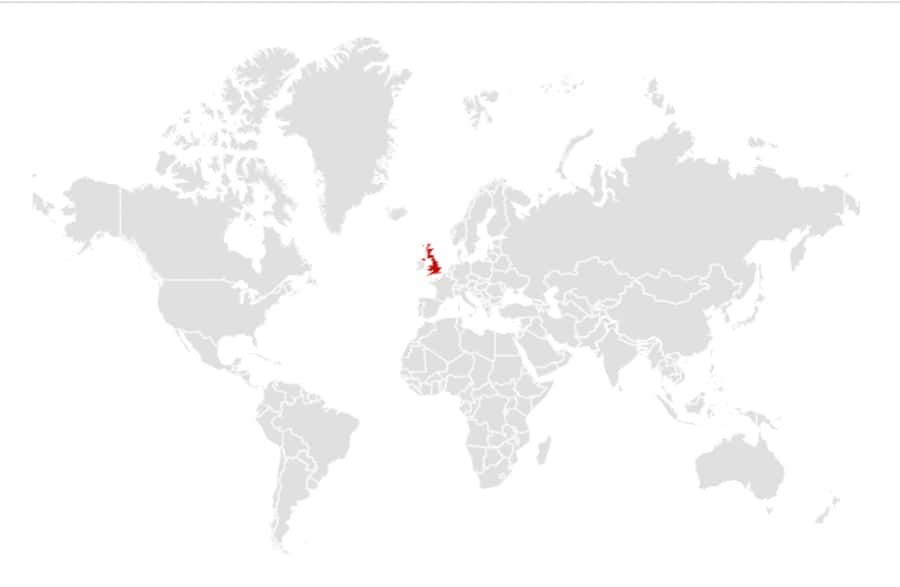
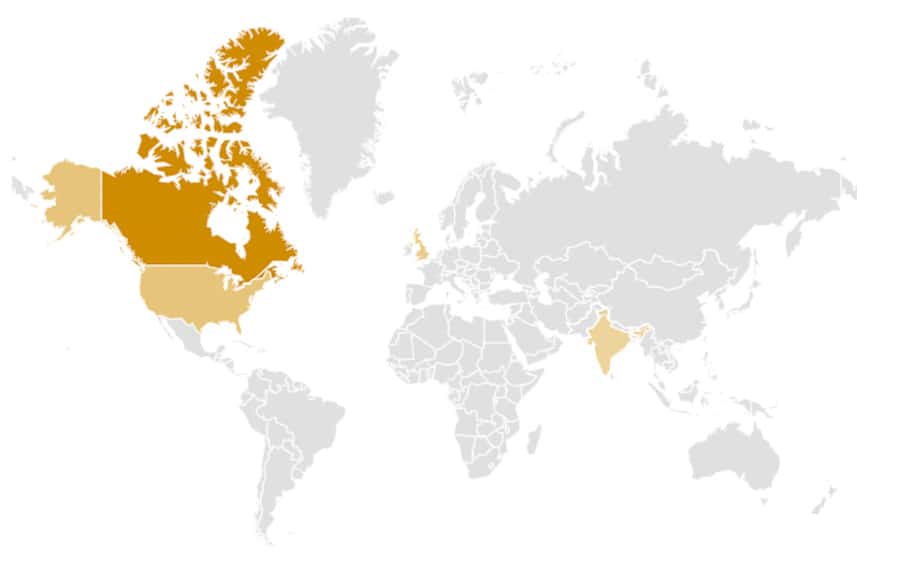
Recommended monetization methods:
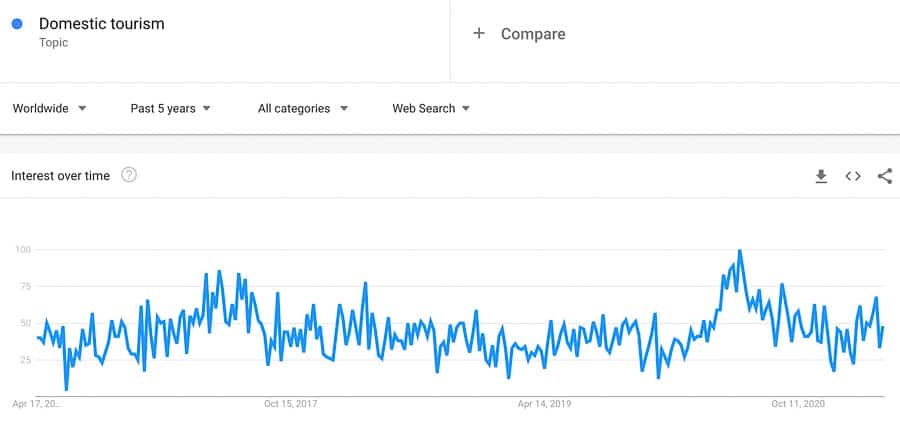
Micro-niche ideas:
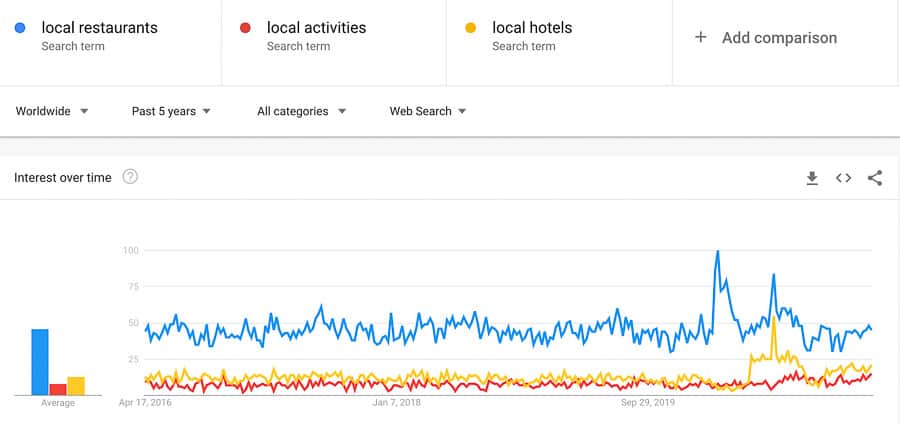
Interest by regions:
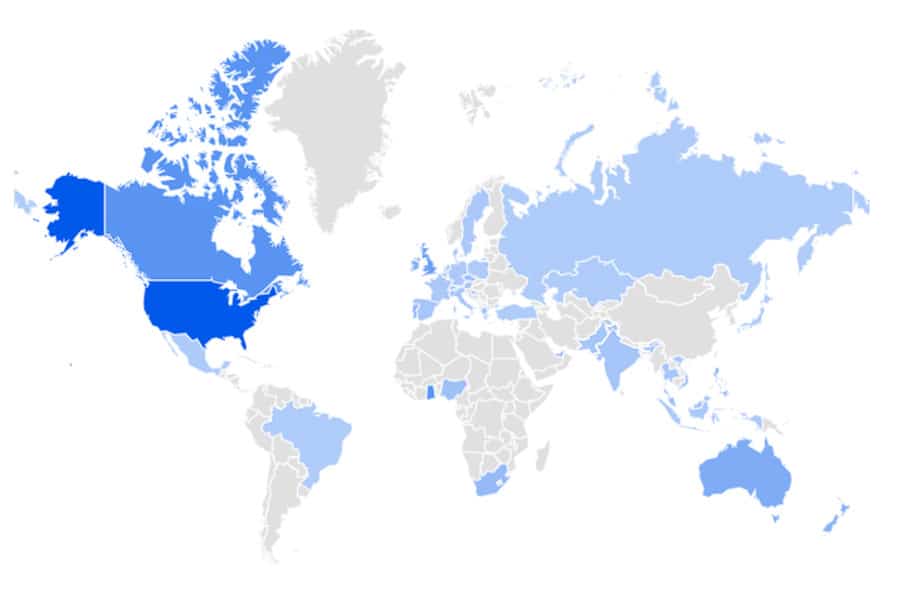
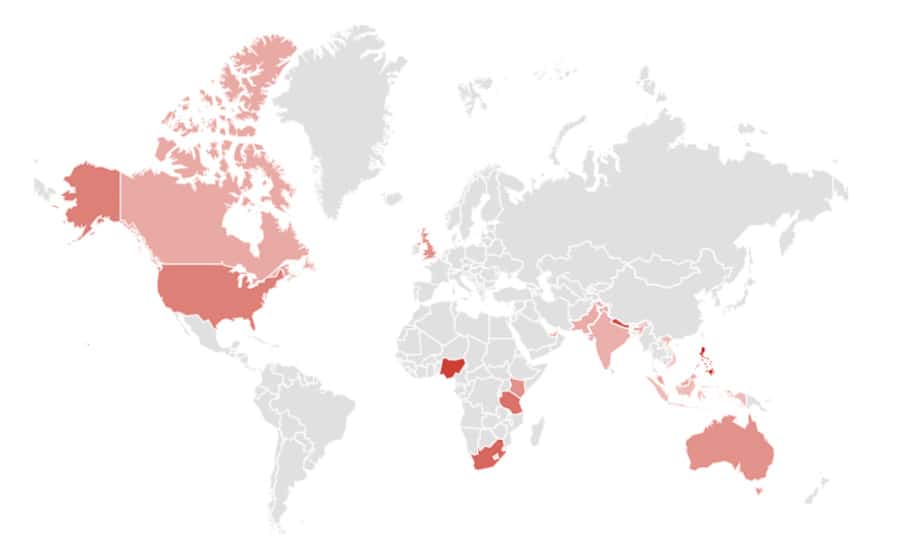
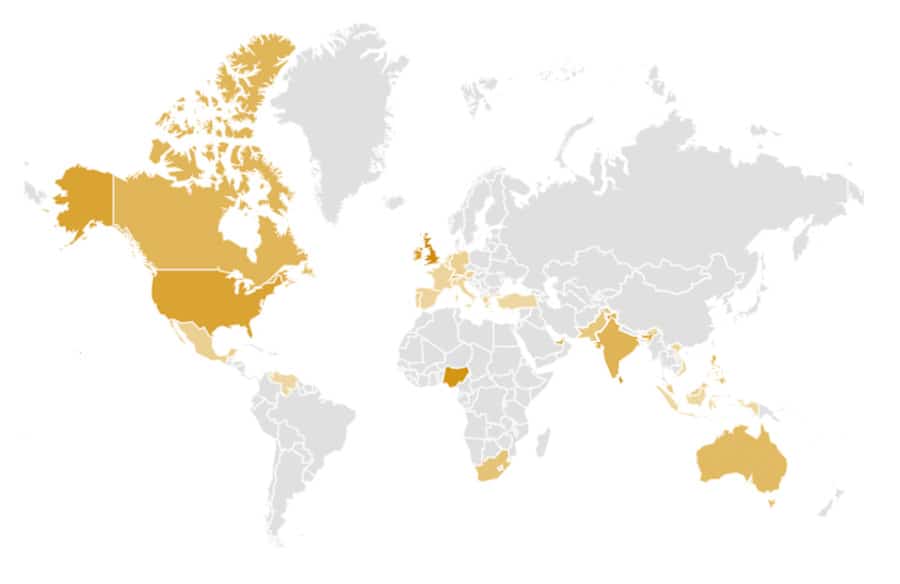
Recommended monetization methods:
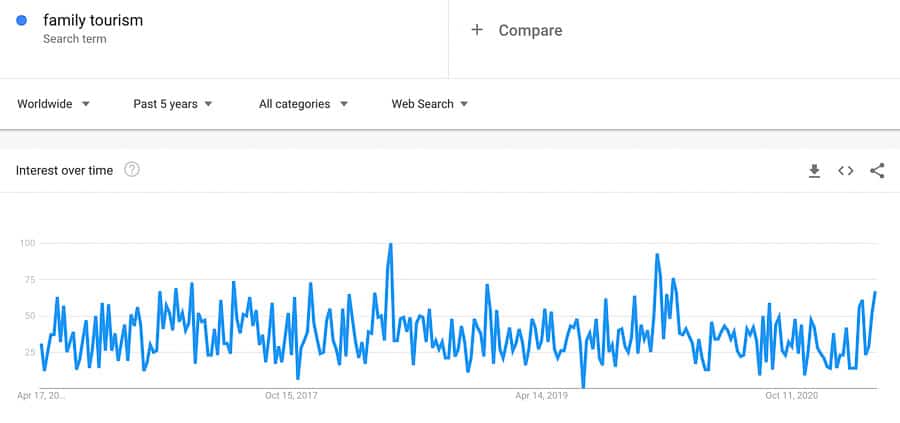
Micro-niche ideas:

Interest by regions:
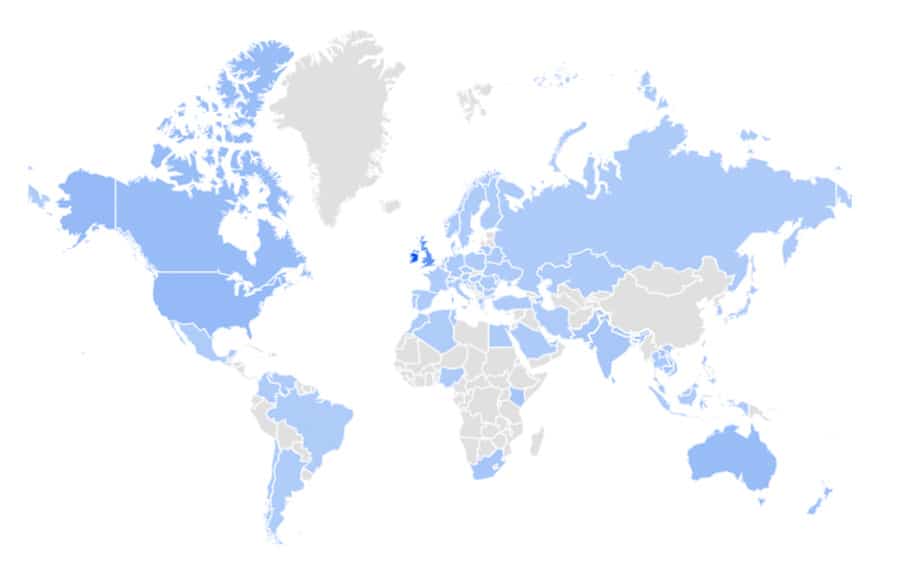
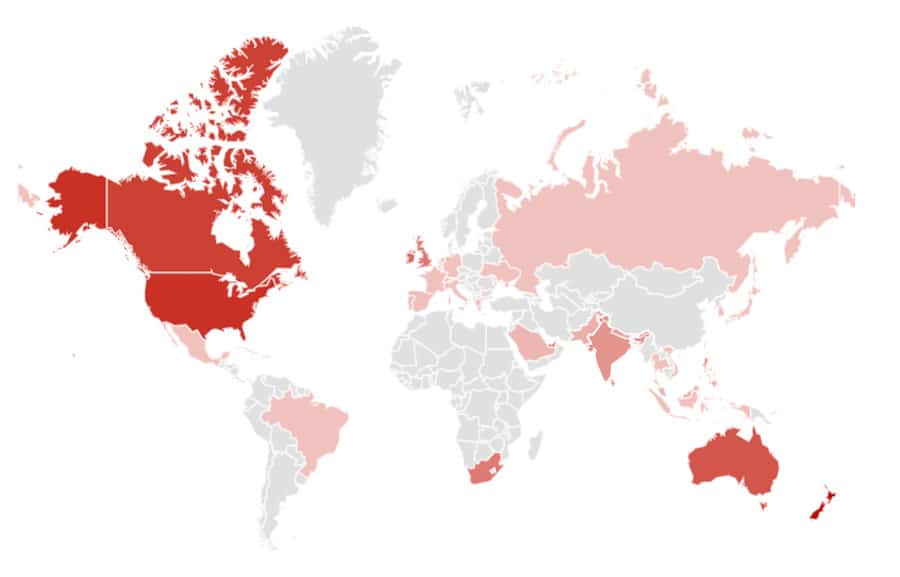
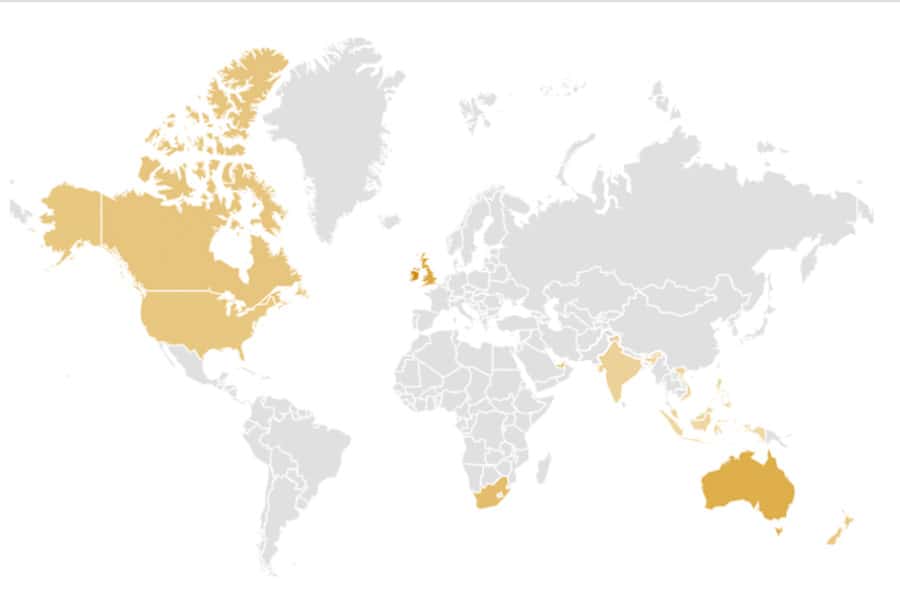
Recommended monetization methods:
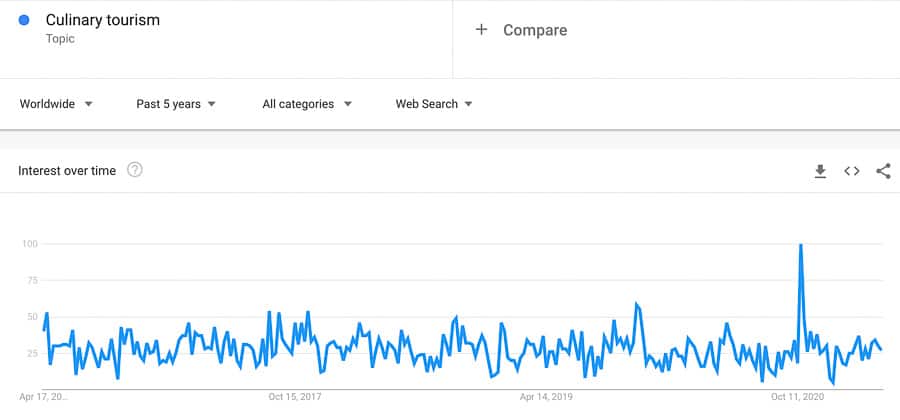
Micro-niche ideas:

Interest by regions:
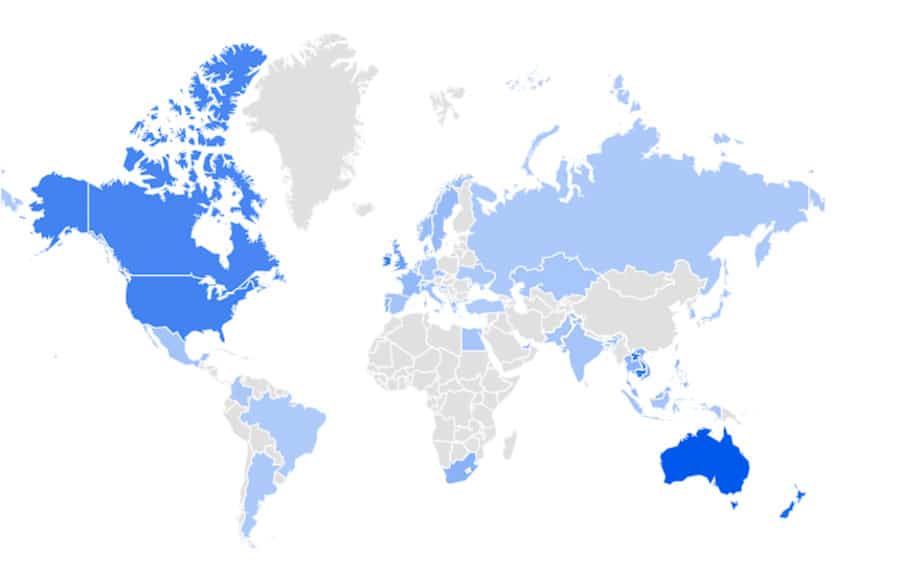
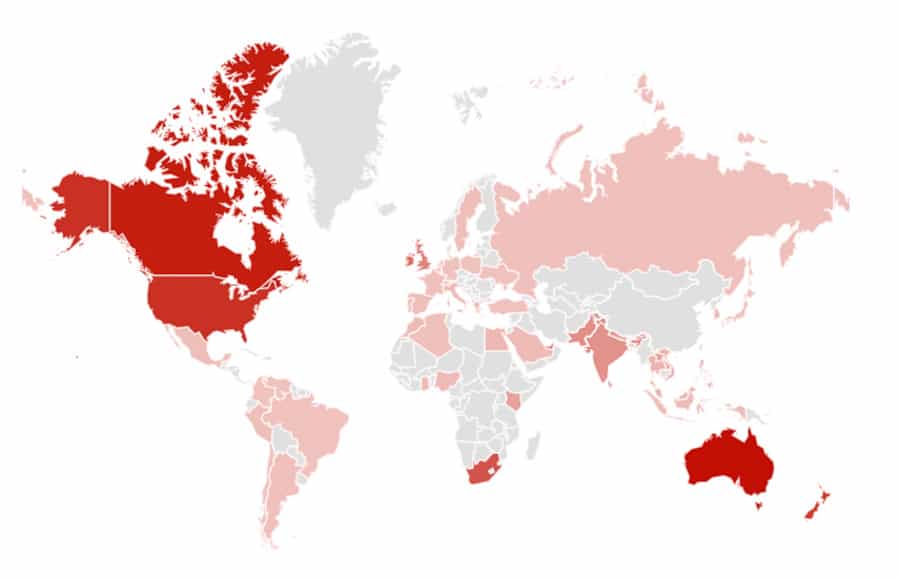
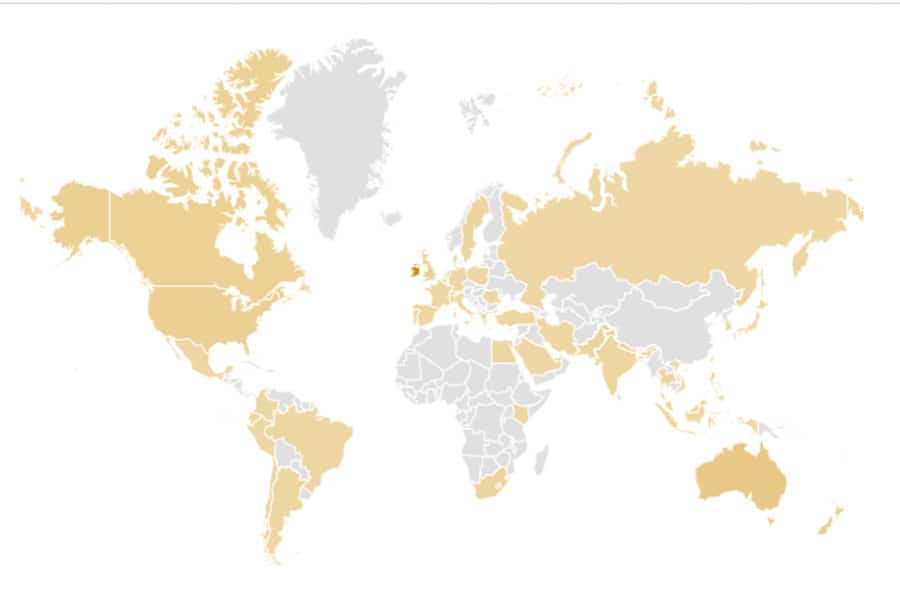
Recommended monetization methods:
Other tourism niches ideas are:
Now it’s your turn!
Although in 2022 the tourism industry is still affected by the covid, there is no doubt it will bloom again.
Maybe is the right time to tap into new niches. in any case, the best option for any entrepreneur who wants to get into the tourism niche is to niche down.
Going sub-niche or micro-niche, you might have fewer customers, but they will be able to find you. This will also help you grow your website authority faster and start making money quicker!
If you have any question leave a comment below.

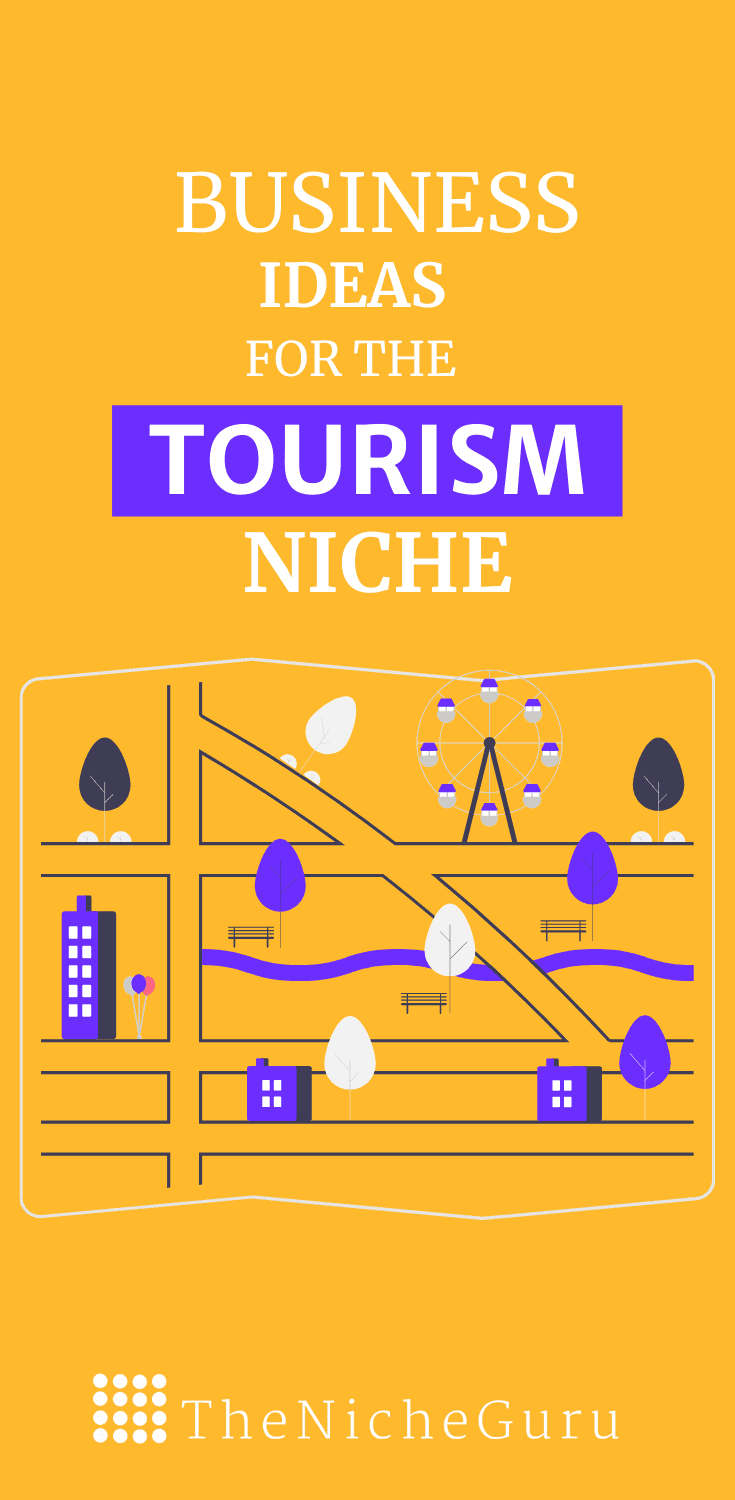
RELATED CONTENT
Choosing the right niche makes a huge difference in attaining long-term success. While some niches…
TikTok is skyrocketing as one of the fastest-growing social networks, offering immense potential for making…
Are you looking for the best Youtube niches with low competition to start a profitable…
Finding a DIY niche for your website can be both exciting and profitable. If you…
Personal Development Report: 50+ Niche Ideas, Trends & Tips In this report, you will learn:…
Parenting Niche Report: 50+ Niche Ideas, Trends & Tips In this report, you will learn:…